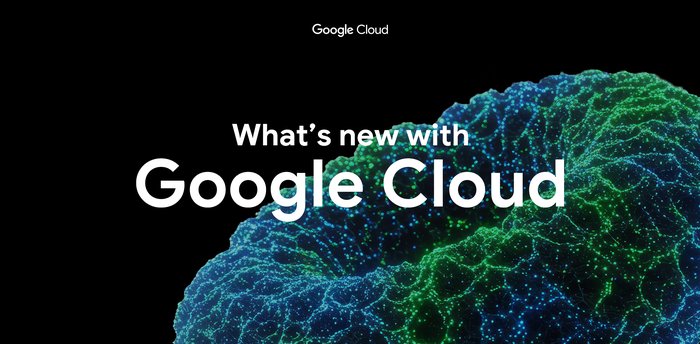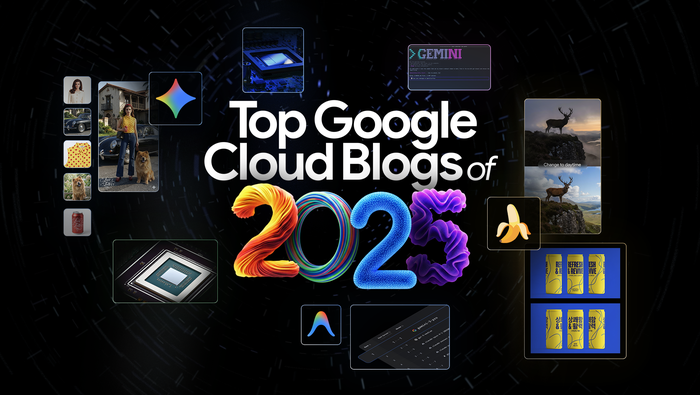Scott Penberthy lost his mom to cancer — he’s now committed to using his passion for AI to advance healthcare

Google Cloud Content & Editorial
Try Google Cloud
Start building on Google Cloud with $300 in free credits and 20+ always free products.
Free trialEditor’s note: Scott Penberthy is the Director of Applied AI in Google Cloud's Office of the CTO (OCTO), a team that works with some of Google Cloud’s largest customers to solve their most complex business problems and advise Google on emerging trends across industries, geographies, and technology. A self-described student of deep learning, he's working with healthcare providers (and as a side project, NASA) on how we can better understand both life and the universe.
How does an advanced artificial intelligence specialist think about AI?
AI is the ultimate pattern recognizer. At hyperscale, which is what we're starting to do now, AI can recognize patterns that people would have a very hard time with due to the amount of data involved.
Why is pattern recognition important?
Pattern recognition is how we learn numbers, language, and so many other things. Markets work by establishing patterns of supply and demand. Most relevant to what I'm doing now, patterns are the core principle of all kinds of code — not just computer code, but the code of life that we find in genetics, and the code governing the physics of the universe.
It's becoming clear that a lot of life is computation. Not only in the genetic code, but also in the interactions of the microbiome and your personal DNA. It's like there are multiple internets in your body. If we can develop ways to read all that data, and develop powerful enough AI, we can understand our code and those interactions. That means a revolution in human health.
Why do you think this resonates so deeply for you?
I’ve always loved thinking about systems, the "how?" and the "why?" of how things work. I started playing with computers when I was 12, and when I was 13 someone gave me a printout of the source code for a Star Trek computer game. I took it home and unrolled it across my parents' house to figure out how the game worked. Once I figured out how it worked, I turned it from a single player to a multiplayer game so my friends could play too.
Later in life I went to MIT thinking I'd become an astronaut, but I didn't have the eyesight for it. I was dejected, and came across a sign one day that said "Free Beer" — it turned out to be a way to get people to the MIT AI Lab. I was hooked pretty quickly, since it is the best way to understand how the world computes. It's so interesting that it's fun to keep up with everything that's going on. I still read two or three research papers every night.


How did you make the jump from computing to life sciences?
This adventure is very personal to me. My mom died at 57 of breast cancer. It was a terrible treatment, involving surgery, chemotherapy, morphine, and disfiguring steroids. Just before she passed, she roused herself and made me and my brother promise we'd find a better way to treat cancer.
My brother, David, became an oncologist. At the time I had no idea how I'd be able to help. I came to Google with an assignment to figure out ways that AI could be useful in the world. In 2020 my dad got COVID, which motivated me to find ways to make an impact in the healthcare space. I picked up the phone and started making phone calls to current and potential customers. Pretty soon I was pulling out my old Biology and Cellular Chemistry books, and thinking about genetic codes. There are companies now that can read DNA and RNA, the source code for everything alive, for relatively little money and it's getting cheaper.
I started to see cancer as a programming problem, a pattern gone wrong, which means we can learn to fix it. I'm keeping my promise to my mom.
If we solve cancer, or understand quantum energy, can we understand everything?
Let's do one thing at a time. We're not able to solve cancer yet, but it's getting very encouraging for some major cancers, particularly when we combine genetic medicine with other techniques. There are amazing trials underway right now. The cost of gathering genetic data is also falling fast. It’s gone from $1 billion a person a few years ago, to approximately $100 in the next 24 months. The understanding of the human body will be immense.
Understanding all of nature is a very tall order, though. The more we discover, the more we find underneath. AI is getting powerful, and we're able to deliver it via the cloud to more researchers in more places. From the biggest structures to the most nano events, with all the new data and complexity we're uncovering, we can apply AI and make sense of even grander patterns. This invariably leads to new and better "why?" questions. I see fundamental discoveries feeding insatiable curiosity for a long time to come.




